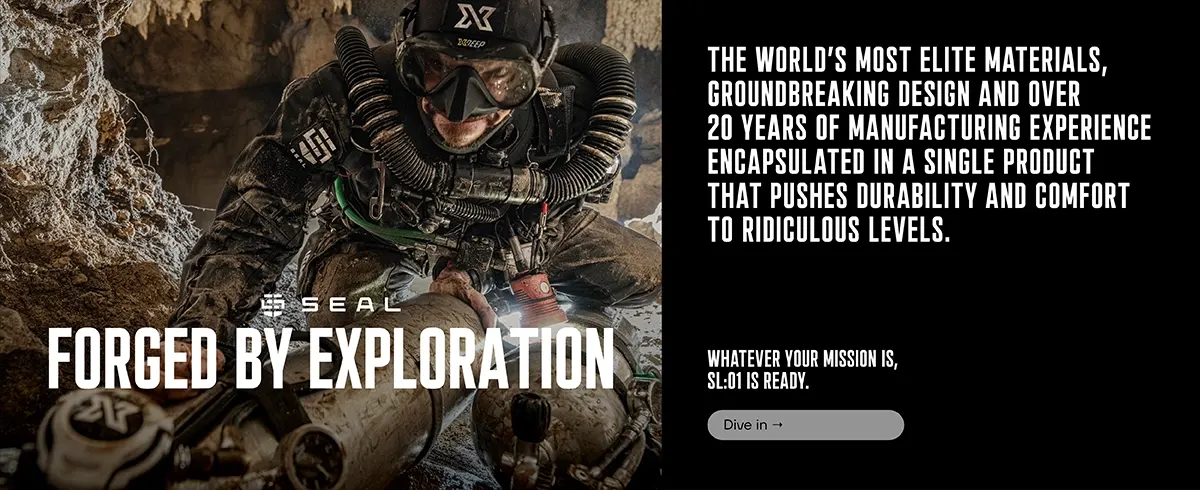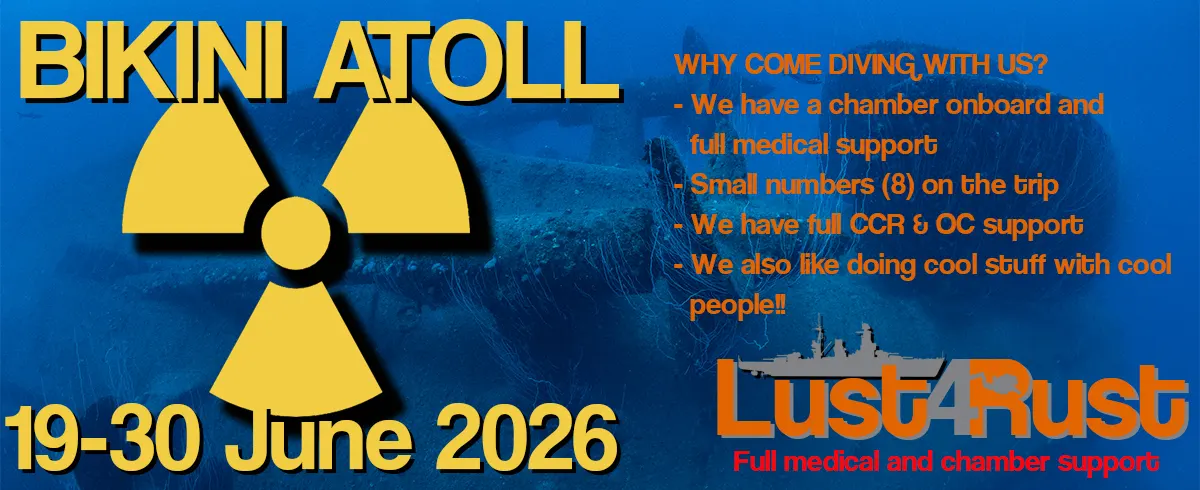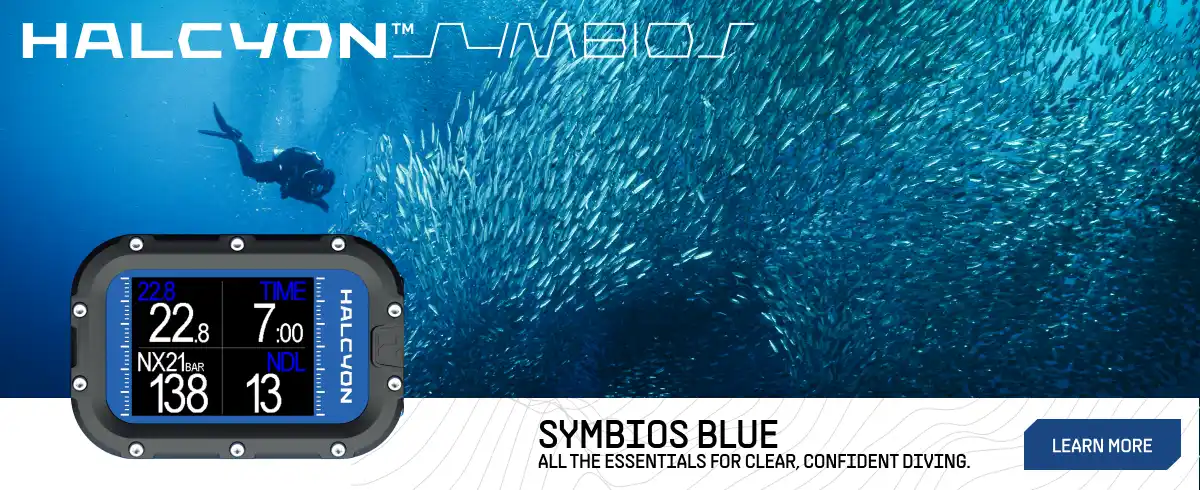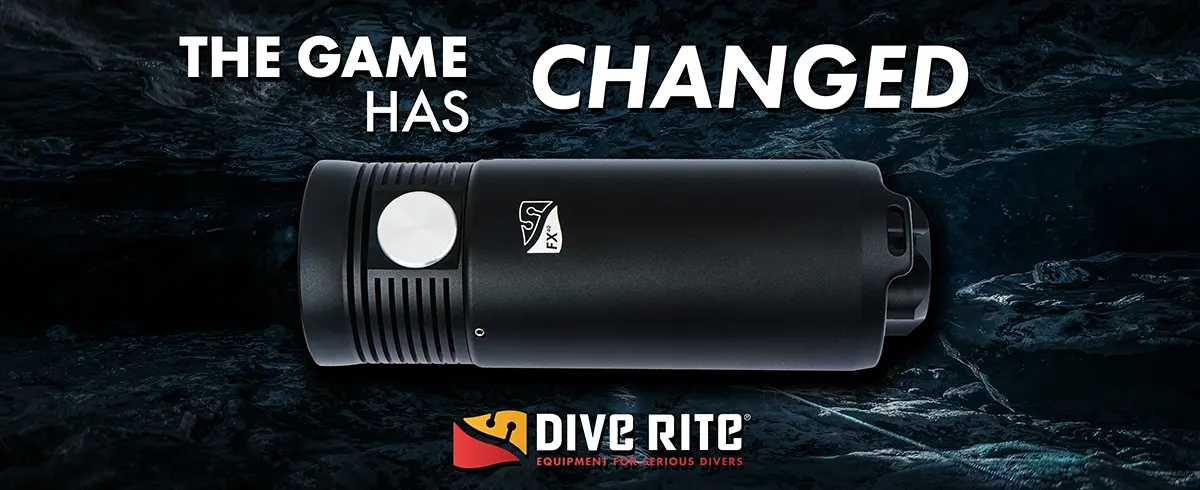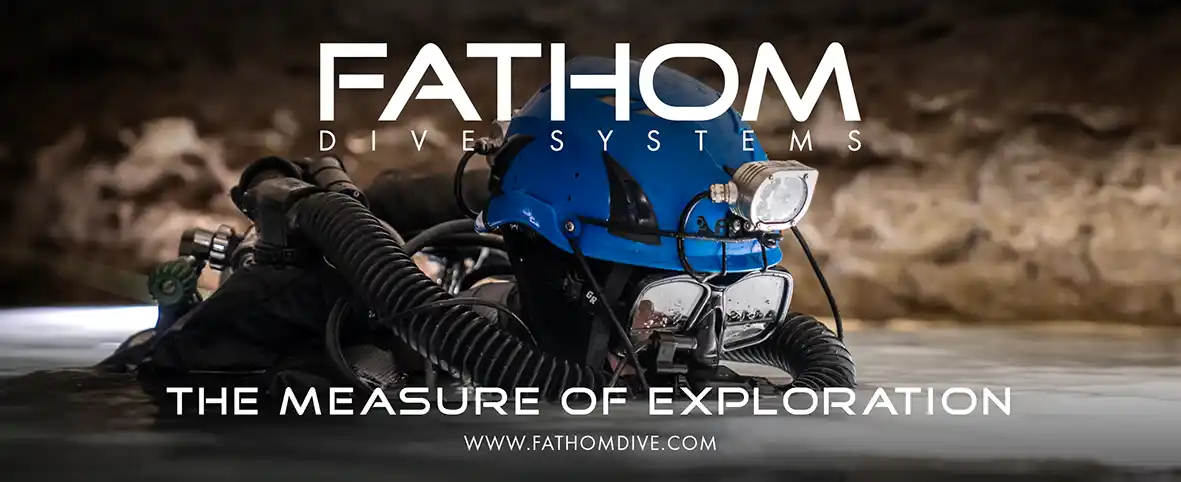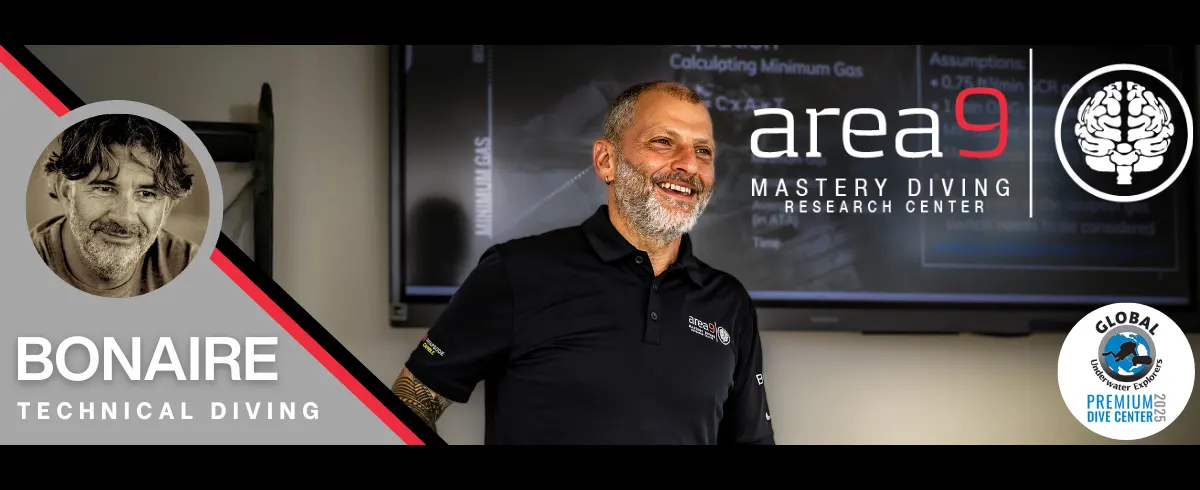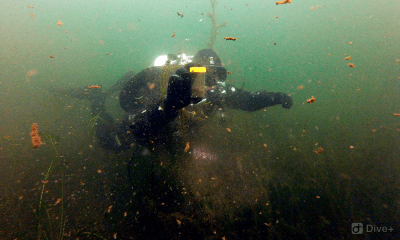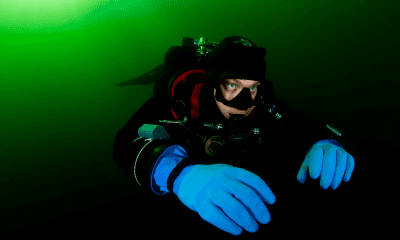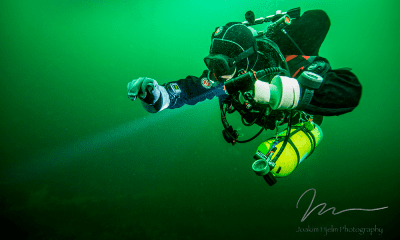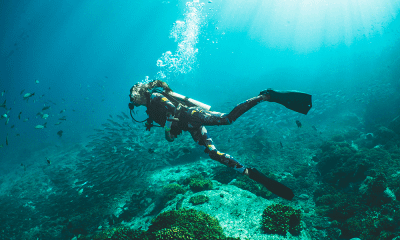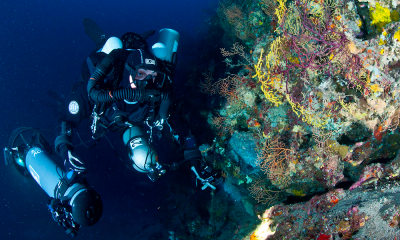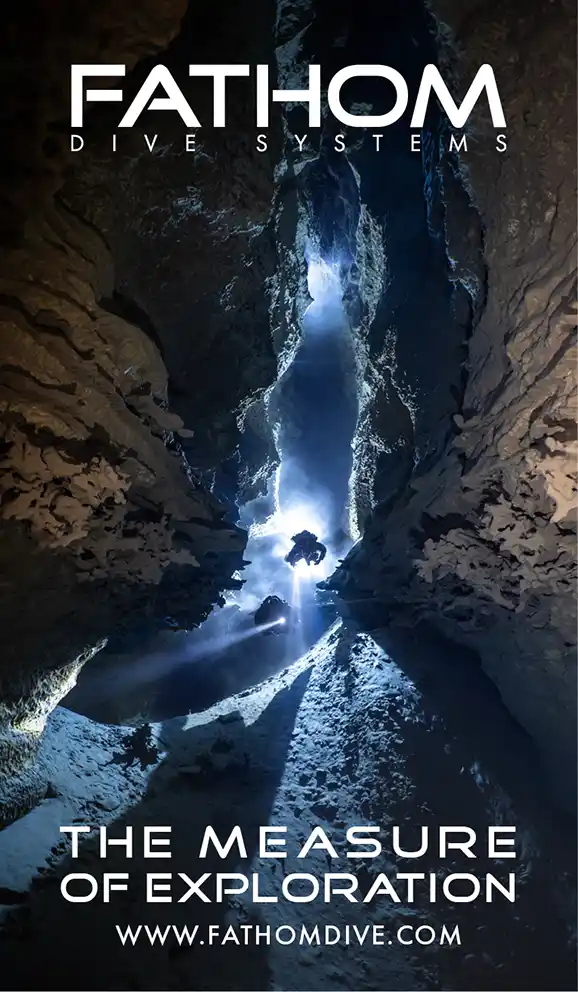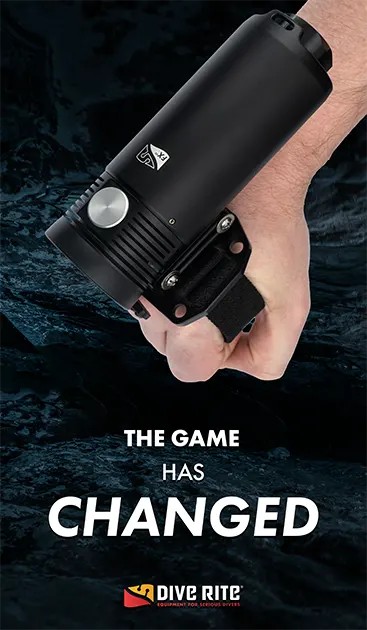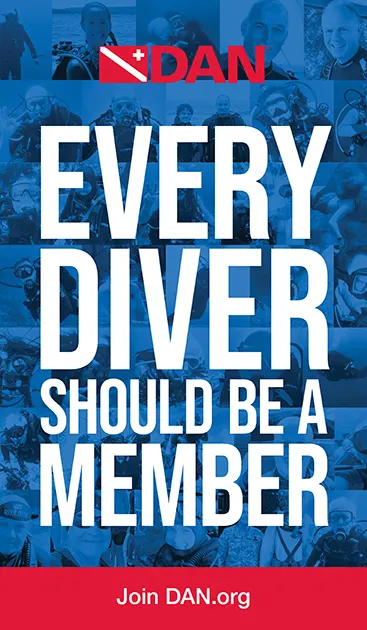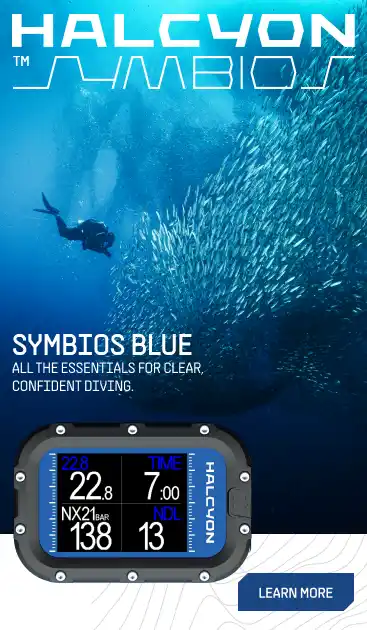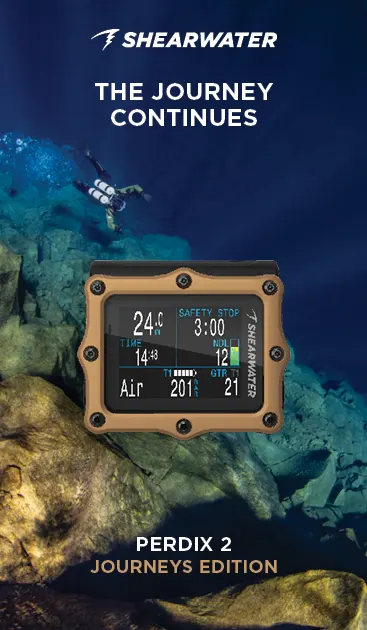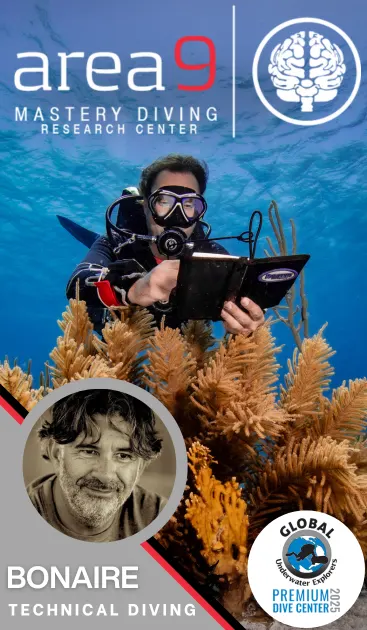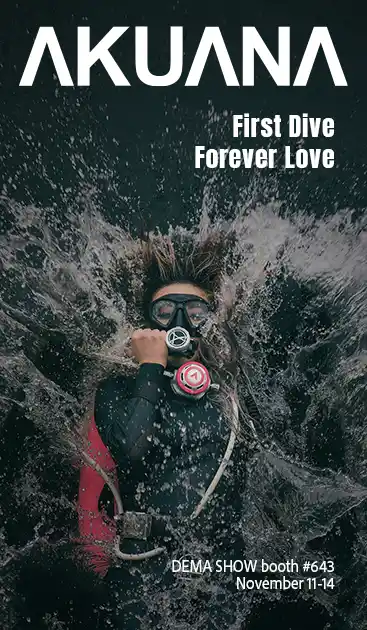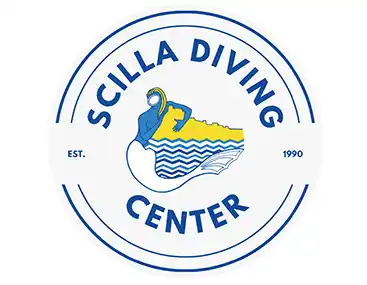Community
Sizing Up The China Diving Market
Ask any training agency executive about the growth of diving, and he or she will likely mention the phenomenal growth of diving in China. We asked Edmund Yiu, owner of RAID China, and tech distributor Xtreme Deep Asia Limited, for a perspective on the Chinese diving market. How’s your Kung Fu?

by Edmund Yiu. Images courtesy of the author.
Ask any training agency executive about the growth of diving, and he or she will likely mention the phenomenal growth of diving in Asia, particularly in China. And everybody seems to be chasing it.
In fact, as this blog was being prepared there were two large rival diving exhibitions; one being held in Singapore, the other in Shanghai, both on the same weekend, which were locked in a ongoing battle for eyeballs, attendance, and, most importantly, exhibitors.
Ironically, Edmund Yiu, an accomplished technical diver with over 6000 dives and an instructor trainer who heads RAID China and tech equipment distributor Xtreme Deep Asia Limited, found it necessary to exhibit at both the ADEX and DRT shows, lest his companies concede market share to others. InDepth caught up with Yiu at the last Diving Equipment and Marketing Association (DEMA) show in Las Vegas to get a perspective on doing diving business in China. Here’s what the man had to say.
InDEPTH: I keep hearing that, from a global perspective, China is a hotbed of diving right now. Maybe you could explain if that is the case and what’s driving it.
Edmund Yiu: Of course, the world is always looking at China. It’s not just the diving industry; I think it’s the same as everything else as it’s really because there are a lot of consumers that have all of a sudden opened up, and there is certainly wealth involved. Everyone thinks there’s a lot of money to be made there.
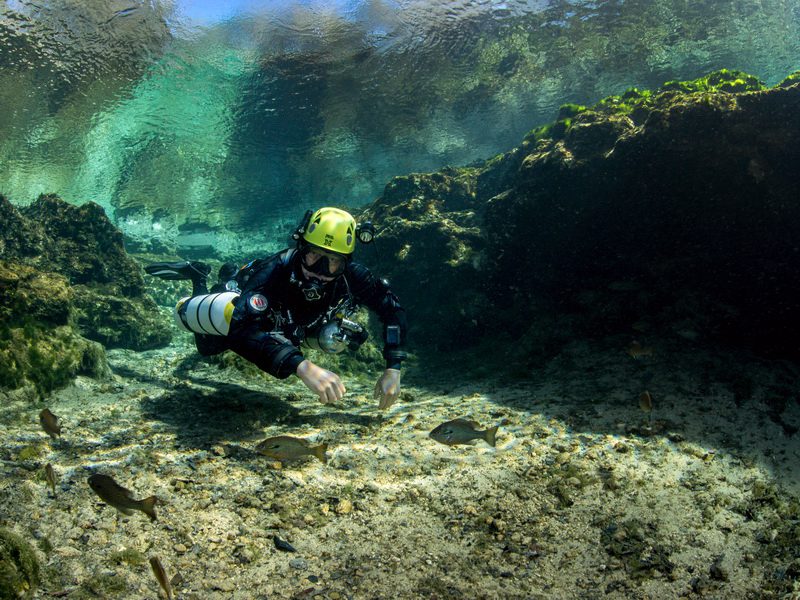
Honestly, I am a little tired of hearing about the China market. In terms of opportunities, of course, there are plenty. But I don’t think China is as big of a gold mine as everybody thinks it is. It’s very tough to do business here in China. It’s hard to maintain profit margins and there are lot of competitors. Many are out to try to destroy each other instead of working together to protect the business, and there are price wars, misinformation, and in some cases, a total disregard of intellectual property. These things threaten to kill the market faster than anyone can benefit from it.
Isn’t diving relatively new in China?
The diving industry has only been into China for a little more than 10 years. However, it really only just got started about six years ago. So, you will find very few people who has actually dived longer than six years; most have dived less than three. In terms of age groups, you will not find many older people that dive or have been certified to dive. Everybody is pretty young. I would say 20 to 40 years old, in that range. Demographically, it’s very attractive because there’s a huge population. Market penetration is just at the beginning, and there’s a lot of potential. And people there certainly have money to spend because they have been oppressed for so long and hungry for everything, so they go out trying to buy everything. Not just diving.
So the industry is seeing a lot of growth?
The major agencies are all looking to grow, so over the past few years they have expanded very quickly. There are a lot of course directors and instructors who, in many cases, have barely enough dives or real experience to become one.
It becomes very evident when we do crossovers. We have to teach some of the instructors a lot of the basic diving skills again. Even if they are course directors. There are instructors with just a few years of diving and yet, they are looked up to as idols. But if you compare them to people around the world who have been diving quite a while longer, they really have no idea what the outside [diving] world is like.
Is it true that most of the business is done online?
In China, everybody buys everything online. This is where the majority of purchases come through without any geographical boundaries, so all the dive shops sell countrywide. Surely they will have some locally-based customers, but when I give them stuff to sell, they sell it everywhere, the whole country.
The trouble is when you are selling stuff online, price competition is all there is. So, customers always look around and find the lowest price. As a result, margins are shrinking and it just kills the market for us.
So where do divers go to get a gas fill?
Well, most people in China aren’t in the habit of buying their own tanks and that’s how it is. Everybody uses the tanks provided by dive shops. Nobody really owns tanks unless they are a professional.
What about nitrox?
No, most dive shops don’t offer nitrox. Having and maintaining a nitrox filling facility would be a nightmare here because it’s very hard to get oxygen in China. Compressed gas and other things all heavily regulated. Even knives are heavily regulated. The Chinese government is very paranoid about terrorists. You cannot even buy gasoline unless you’re driving a car to fill it up.
Is there good local diving?
That’s another thing about diving in China, there is really no good place to dive. There is only confined water like pools, which everybody uses for training. For open water dives, most people travel to Southeast Asia. The countries that have benefited the most from Chinese dive travel are probably the Philippines, Thailand, Indonesia, the Maldives, and Malaysia. There are also many dive shops that are being opened or bought by Chinese at these destinations. There are lakes and of course the sea in certain parts of China, but they are cold, have bad visibility, and are not very diveable.

Any shipwrecks or caves?
There are plenty of shipwrecks, given thousands of years of Chinese history, but they usually sank into the mud; most of the coastal areas are very muddy and often have zero visibility. Just how fun can that be? It may be worth it for archaeology and historical study purposes. But certainly not for recreational diving.
We also have some caves in the western part of China, which are seasonal, tend to be deep, and have minimal facilities. These are not the places that most people want to go —only very experienced “tech” divers. Most people want to go diving in tropical water and see corals and fishes. So, everyone goes on trips. If you go to any diving destinations in Asia and they’re all very crowded with Chinese tourist divers.
How do people there learn about diving? Is information readily available?
One of the problems we have is that people are not able to get good complete information. In China, we have limited information and are not able to easily get access to the outside world because the Internet is blocked. First of all, if you do a search on diving, a lot of the information is in English, but the majority of Chinese don’t speak English. The second thing is that most people don’t have any information about what the outside world is like. So it’s very easy to fall into the trap and idolize and follow the diving “hotshots” or “superstars” so to speak.
The problem is that everyone in the industry wants to be the star, and if they don’t have the knowledge, they just make it up. That’s very typical of Chinese mentality. They will just say anything. And people will believe it. They won’t have any basis to verify it.
It sounds like there isn’t a lot of cooperation within the diving industry.
One of the things that is happening here in China is, how should I put it, factionalism. Basically, there are the existing agencies and so many new agencies and pseudo-agencies in China right now because they all see it as a money-making business and want a piece of the pie. PADI has the biggest market share in China, because they have been going at it for about 12 years, marketing wise, and spending a lot of money building it; however, most other agencies are very small.
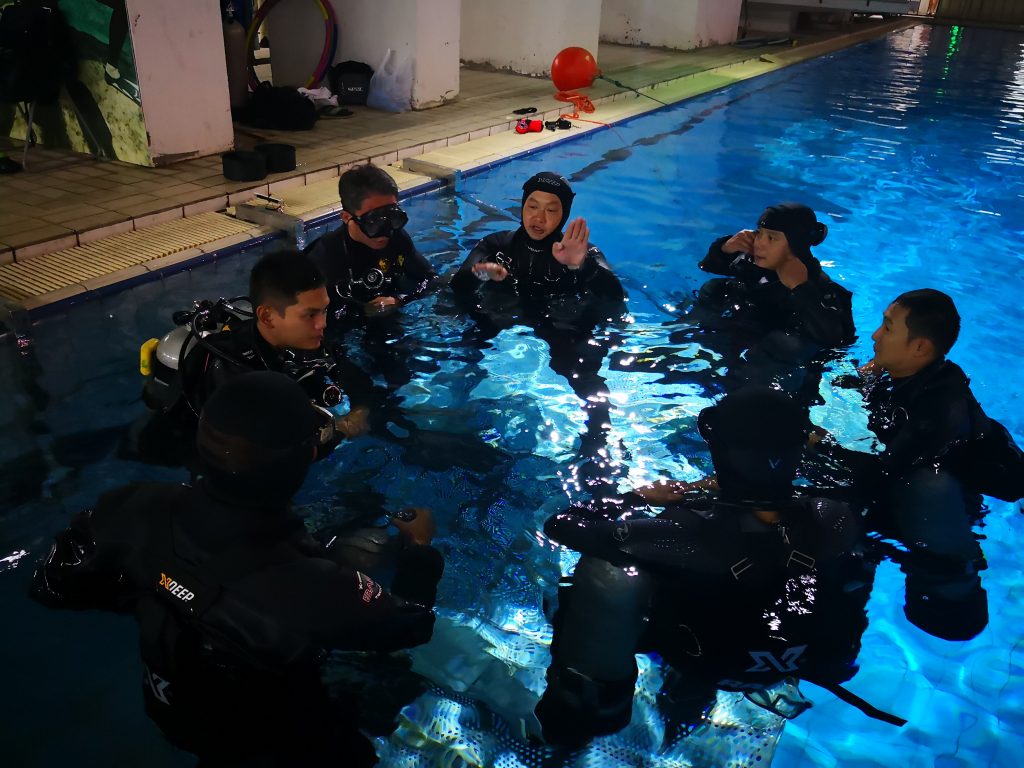
Factionalism?
What I mean by factionalism is that all the small agencies claiming they are the best and everybody else is no good, and they never cooperate with each other. It’s like Chinese Kung Fu: there are all these different factions, they have different styles, and they fight each other all the time. The Chinese mentality is that your competitor is the enemy and everybody wants to kill the competitor. That’s what business is like there. It is cutthroat. Everyone is trying to kill each other instead of trying to help each other build an industry.
It sounds like a race to the bottom?
Whether it’s recreational open water or technical rebreather training, the problem is that everyone wants to grow [the business] really fast, because that’s how it is in China. They want to do everything quickly, and you can only do that to a certain degree in some industries, but you can’t do that very well in diving. You can only push it so much.
The whole point I think is that we enjoy diving, and we want people to learn it properly so they can enjoy their diving too. So that’s why we’d rather take the time and focus on quality. We believe it’s important to maintain our standards.
So, as much as I want us to grow, we don’t like to just sign everybody off because that’s what everybody else is doing. It’s the easiest and quickest way to make money. But, for me, making money is secondary because we are educators and genuine divers.
You told me at the DEMA, that RAID is trying to “do it right,” in bringing diving to China. What did you mean by that? I’m sure you know that DIR i.e. “doing it right,” was the original name for Global Underwater Explorers’ (GUE) standards. So RAID also trains new divers to wear a backplate, wing, and long hose?
We won’t go as far as GUE in term of the “DIR” standard. Yes, we do promote backplate and wings, and we promote long hoses for new divers because it just naturally goes well with our standards and philosophy. It is safer and more efficient underwater. It actually feels more natural when you are streamlined so it’s not just about being more technical. We believe the safest way is probably the best way and it also makes them a better diver. It’s no more difficult than learning the traditional way kneeling on the bottom to do drills wearing a buoyancy jacket and a heavy weight belt. Instead we spend time and effort teaching divers correctly, i.e. properly weighted and neutrally buoyant, which means our costs are higher, and accordingly, we charge a little bit more. So we don’t need to get involved in price wars.
You’re talking buoyancy and trim!
Yes. To be able to hover horizontally, motionless, and have a proper weighting and trim is essential for all divers, not just technical divers. Open water divers appreciate it. It gives them more confidence. It’s also safer and better for the environment.

